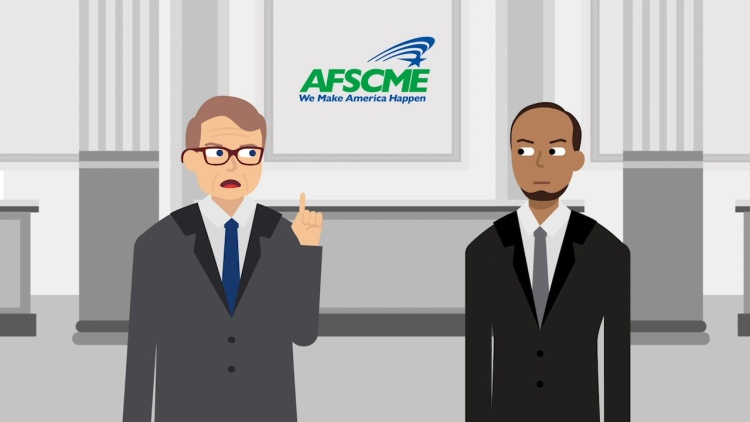Janus v. American Federation of State, County, and Municipal Employees
United States Supreme Court
585 U.S. 924, 138 S. Ct. 2448 (2018)

- Written by Sean Carroll, JD
Facts
Under Illinois law, public employees were not required to join unions. However, the law required that all nonmember public employees be represented by a union in collective-bargaining matters and pay agency fees to the union for that representation. Agency fees were a percentage of union dues intended to reflect only collective-bargaining expenses and not expenses relating to the union’s expression of political or ideological viewpoints. Public employee Mark Janus (plaintiff) was not a union member and disagreed with viewpoints of the union that represented him. Agency fees were automatically deducted from Janus’s paycheck. In a lawsuit challenging the state’s agency-fee law, Janus argued that the agency-fee deductions were compelled political speech that violated the First Amendment. Evidence showed that unions were not allowed to charge agency fees to nonmember employees in 28 other states or nonmember federal employees and that the labor process in those jurisdictions still worked. However, in Abood v. Detroit Board of Education, the Supreme Court had held that states could require nonmember public employees to pay a union’s agency fees. Relying on Abood, the district court dismissed the lawsuit. The Seventh Circuit affirmed. The United States Supreme Court granted certiorari.
Rule of Law
Issue
Holding and Reasoning (Alito, J.)
Dissent (Kagan, J.)
Dissent (Sotomayor, J.)
What to do next…
Here's why 904,000 law students have relied on our case briefs:
- Written by law professors and practitioners, not other law students. 47,100 briefs, keyed to 995 casebooks. Top-notch customer support.
- The right amount of information, includes the facts, issues, rule of law, holding and reasoning, and any concurrences and dissents.
- Access in your classes, works on your mobile and tablet. Massive library of related video lessons and high quality multiple-choice questions.
- Easy to use, uniform format for every case brief. Written in plain English, not in legalese. Our briefs summarize and simplify; they don’t just repeat the court’s language.





